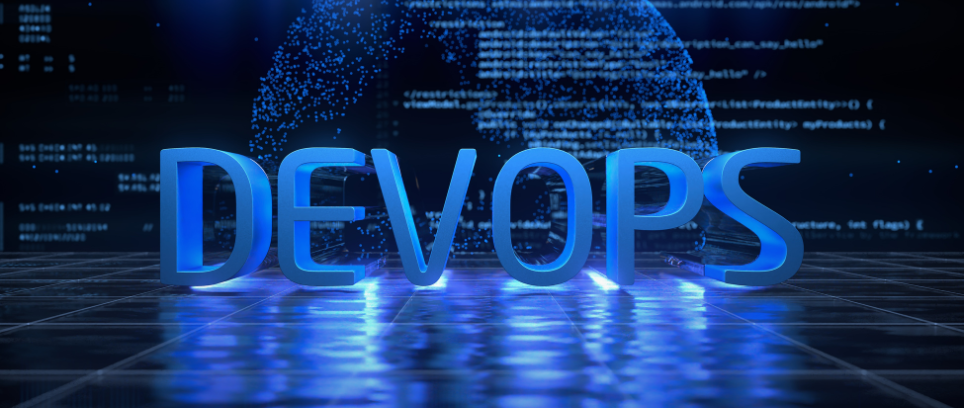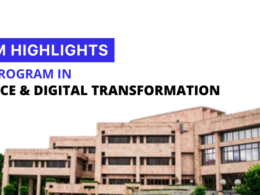In today’s fast-paced digital landscape, the role of a DevOps engineer has become increasingly crucial for organizations striving to deliver software products efficiently and reliably.
If you’re new to the field of DevOps and want to understand what a DevOps engineer does and how to get started, this beginner’s guide will provide you with the necessary insights.
Your Go-To Guide for Mastering the Art of Being a DevOps Engineer
From defining the role to exploring the skills required, let’s delve into the world of DevOps engineering.
What is a DevOps Engineer?
A DevOps engineer is a professional responsible for bridging the gap between development and operations teams, facilitating collaboration, and enabling the smooth and efficient delivery of software products. They apply principles of software development, automation, and continuous integration to streamline processes, enhance productivity, and improve overall software quality.
Why is DevOps Important?
DevOps brings together the traditionally siloed functions of development and operations, fostering a culture of collaboration, automation, and continuous improvement. It promotes faster software delivery, increased efficiency, improved scalability, enhanced reliability, and quicker response to customer feedback and market demands. Ultimately, DevOps helps organizations achieve agility, innovation, and business growth.
How to Get into the DevOps Field?
1. Acquiring Technical Skills
To become a DevOps engineer, you need a strong foundation in various technical areas, including operating systems, networking, scripting, version control systems, and database management. Acquire knowledge of programming languages, such as Python, Ruby, or Java, as well as familiarity with Linux environments.
2. Gaining Knowledge of DevOps Tools
Familiarize yourself with popular DevOps tools and technologies such as Docker, Kubernetes, Jenkins, Ansible, Chef, Puppet, and Git. Understand their functionalities and learn how to leverage them to automate processes, manage infrastructure, and facilitate continuous integration and deployment.
3. Obtaining Relevant Certifications
Consider pursuing relevant certifications to enhance your credibility and demonstrate your expertise in DevOps. Certifications like AWS Certified DevOps Engineer, Azure DevOps Engineer, or Certified Kubernetes Administrator (CKA) can boost your career prospects.
4. Building Practical Experience
Gain hands-on experience by working on real-world projects or contributing to open-source projects. Collaborate with development and operations teams, participate in hackathons or coding competitions, and contribute to GitHub repositories. Practical experience will solidify your skills and make you more marketable in the DevOps field.
Skills and Competencies of a DevOps Engineer
DevOps engineers play a critical role in bridging the gap between development and operations teams, facilitating collaboration, and ensuring efficient software delivery. To effectively carry out their responsibilities, DevOps engineers require a diverse set of skills.
Let’s delve into some key skills and competencies that are essential for a DevOps engineer:
1. Continuous Integration and Deployment (CI/CD)
DevOps engineers should have a strong understanding of CI/CD principles and practices. They need to be proficient in implementing automated processes for building, testing, and deploying software. Familiarity with tools like Jenkins, GitLab CI/CD, or CircleCI is crucial to set up and manage robust CI/CD pipelines, enabling continuous integration and seamless deployment of software.
2. Infrastructure Automation
Automation lies at the core of DevOps, and infrastructure automation is a key skill for DevOps engineers. They should be well-versed in technologies like Infrastructure as Code (IaC), using tools like Terraform or CloudFormation to define and manage infrastructure resources. By automating infrastructure provisioning and configuration, DevOps engineers ensure consistency, scalability, and reproducibility across environments.
3. Configuration Management
Configuration management is essential for maintaining consistency and managing changes across various systems and environments. DevOps engineers should have knowledge of configuration management tools like Ansible, Chef, or Puppet.
They use these tools to automate the provisioning, configuration, and management of software and infrastructure, ensuring consistency and reducing manual efforts.
4. Cloud Computing
As organizations increasingly embrace cloud platforms, DevOps engineers need to be proficient in cloud computing technologies. Familiarity with platforms like Amazon Web Services (AWS), Microsoft Azure, or Google Cloud Platform (GCP) is crucial. DevOps engineers should understand how to deploy and manage applications on the cloud, leverage cloud services, and optimize cloud resources for scalability and cost-effectiveness.
5. Containerization
Containerization has revolutionized software development and deployment. DevOps engineers should have a solid understanding of containerization technologies like Docker and container orchestration platforms like Kubernetes.
They should be able to create, manage, and orchestrate containers, enabling efficient and scalable deployment of applications across different environments.
6. Monitoring and Logging
DevOps engineers need to ensure the reliability and performance of applications and infrastructure. They should be proficient in implementing monitoring and logging solutions to track system performance, detect anomalies, and troubleshoot issues.
Familiarity with tools like Prometheus, Grafana, ELKStack (Elasticsearch, Logstash, Kibana), or Splunk is essential for effective monitoring, log management, and analysis.
7. Collaboration and Communication
Collaboration and communication skills are vital for DevOps engineers. They work closely with cross-functional teams, including developers, operations, and other stakeholders. Strong interpersonal and communication skills enable DevOps engineers to effectively collaborate, share knowledge, and drive alignment among teams.
They should be adept at working in agile environments and fostering a culture of continuous improvement and collaboration.
By mastering these skills and competencies, DevOps engineers can effectively streamline software delivery processes, enhance efficiency, and drive innovation within organizations.
Continuous learning, staying updated with emerging technologies, and embracing a holistic approach to DevOps practices are key to success in this dynamic field.
Stay ahead of the latest trends, continue learning and exploring new technologies, and embrace the culture of continuous improvement to thrive in this dynamic field.
 Pin
PinEmbrace the opportunities, sharpen your skills, and contribute to the transformative world of DevOps.
Join ACCREDIAN’s Data Science certifications and start your journey today! With our extensive collection of data resources, pursue a fulfilling career in data science.
Let’s make your data-driven dreams a reality!






